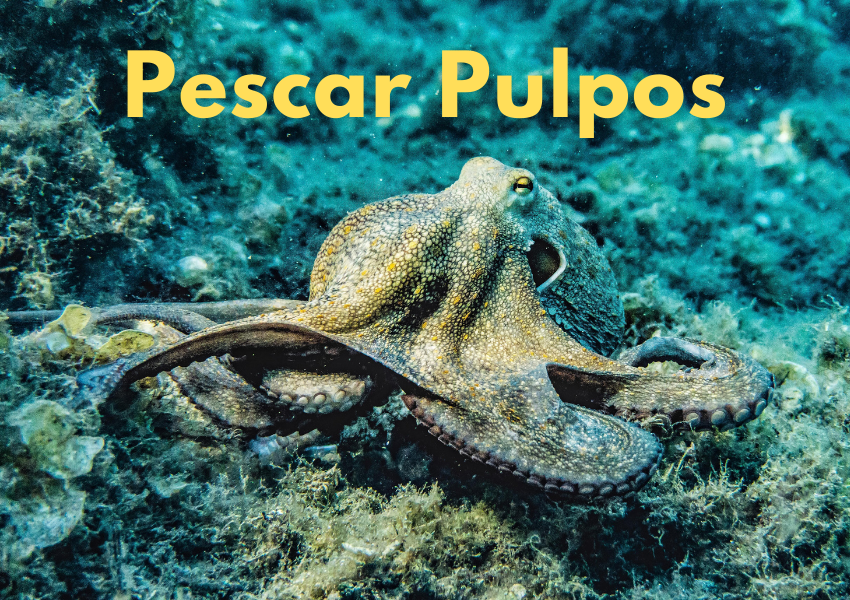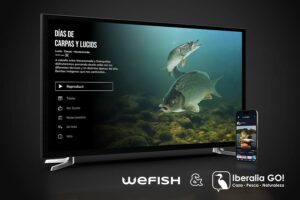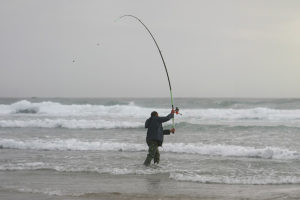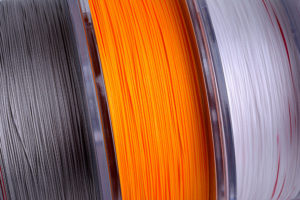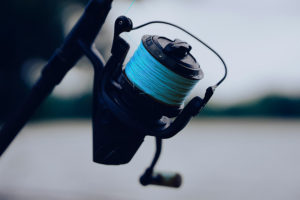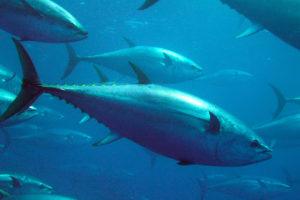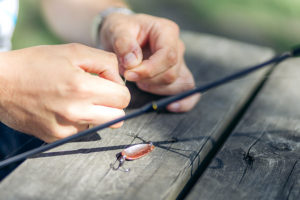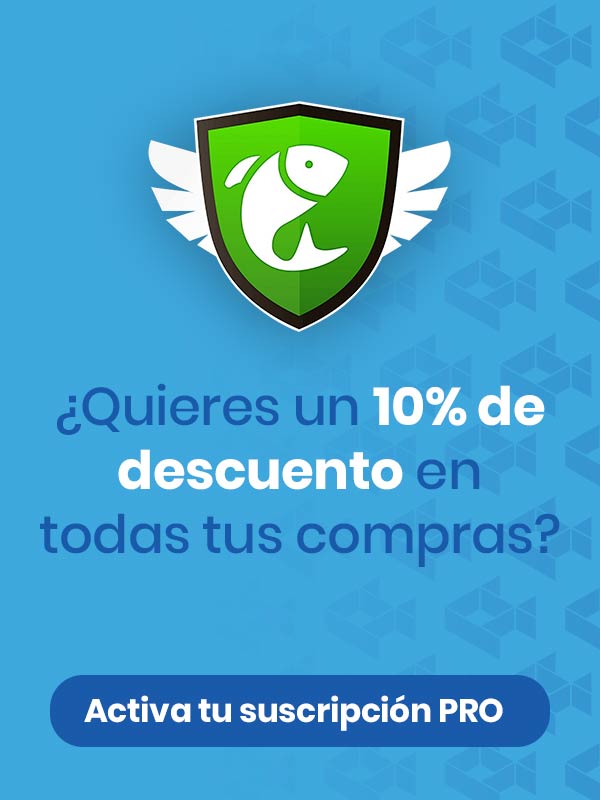Desde el blog de WeFish queremos introduciros al arte de capturar o pescar pulpos. Para ello contamos nuevamente con la opinión y experiencia de Vítor Ganchinho, quien ha capturado cientos de pulpos a lo largo de los años, además pulpos que pesaban más de lo habitual.

Vítor es de Portugal, y comenta que en la zona de Setúbal es muy habitual encontrar a estos cefalópodos. Las razones son que tienen un río con un estuario muy ancho, muchas zonas de marismas y mejillones cercanos, particularmente en Arrábida, donde hay mucho pulpo.
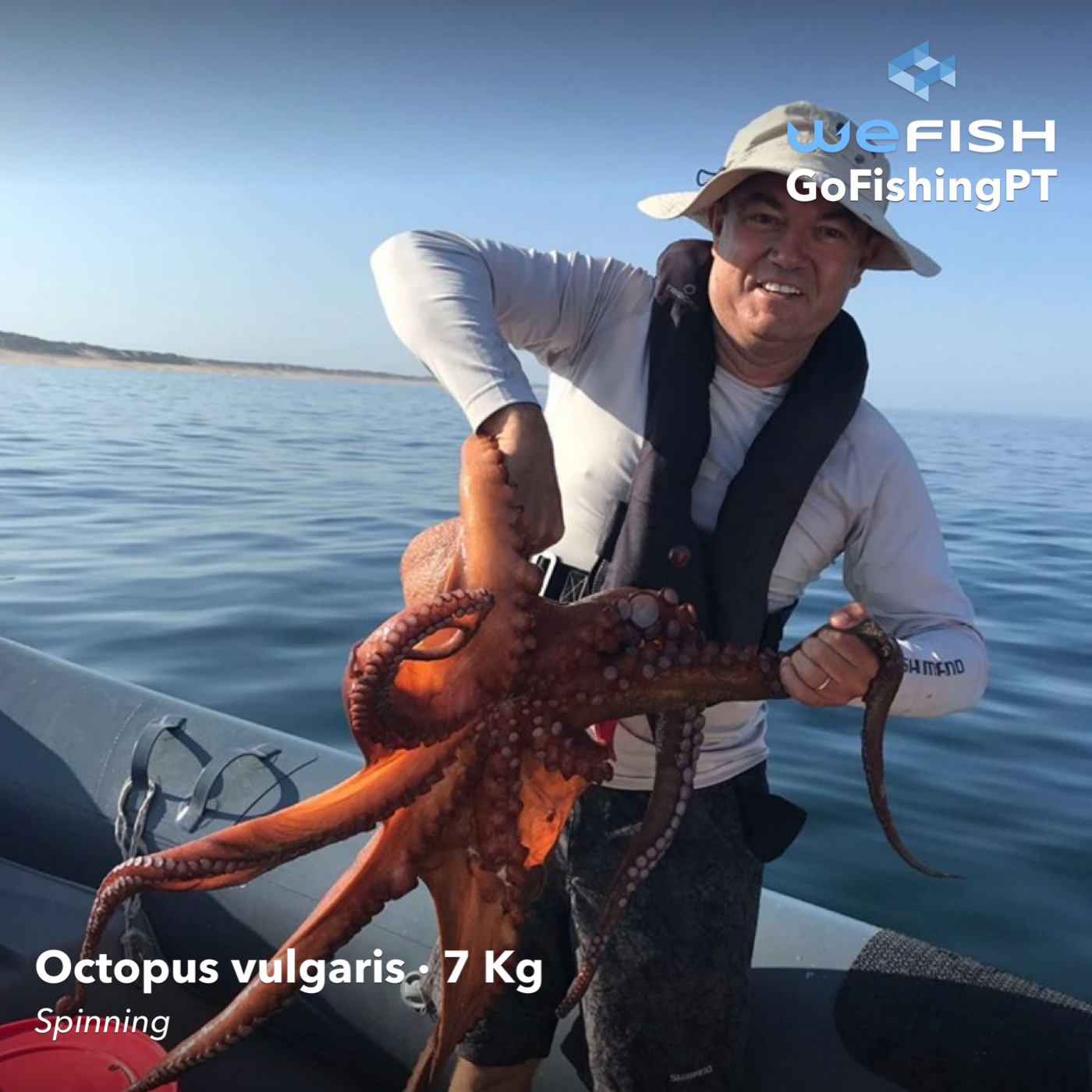
Características del pulpo
El pulpo es un octópodo que puede crecer hasta un metro y medio, de cuerpo blando, sin esqueleto interno como el calamar, ni tampoco externo. Si os fijais bien hay un tentáculo con una ventosa mucho más grande que las demás, se trata del hectocotilo, un brazo modificado que lleva el órgano reproductor. En cuanto a su peso, podemos considerar como una excepción el pulpo que supere los 8 kgs, pero en determinadas zonas muchos llegan a los 10 kgs.
Es un animal extremadamente inteligente. Debido a que no tiene capa exterior ni esqueleto, utiliza su capacidad para penetrar grietas, agujeros, etc. Aprende a esconderse de los depredadores y a usar objetos para cubrirse. Otro medio de defensa es su rara capacidad de camuflaje, logrando a través de sus cromatóforos reproducir los colores de los lugares donde se encuentra, que van desde el blanco, al color arena y al marrón oscuro cuando está sobre una roca. Para despistar a sus depredadores también puede soltar tinta o arrugar su cuerpo dándole una textura de roca, lo que ayuda no solo a camuflarse ante los depredadores, sino también a la caza de peces y alimento. Su dieta es muy variada, pudiendo incluir peces vivos, muertos, crustáceos o invertebrados. Mata a su presa por asfixia o por presión de mordisco con sus dos dientes muy afilados.
El pulpo tiene visión binocular, como los humanos, y también percepción del color. La tinta que libera para confundir a sus depredadores tiene olor y está compuesta de melanina, la misma sustancia que da color al cabello y a la piel humana. Sus principales depredadores son el hombre, los congrios, los tiburones, los meros y sobre todo otros pulpos.
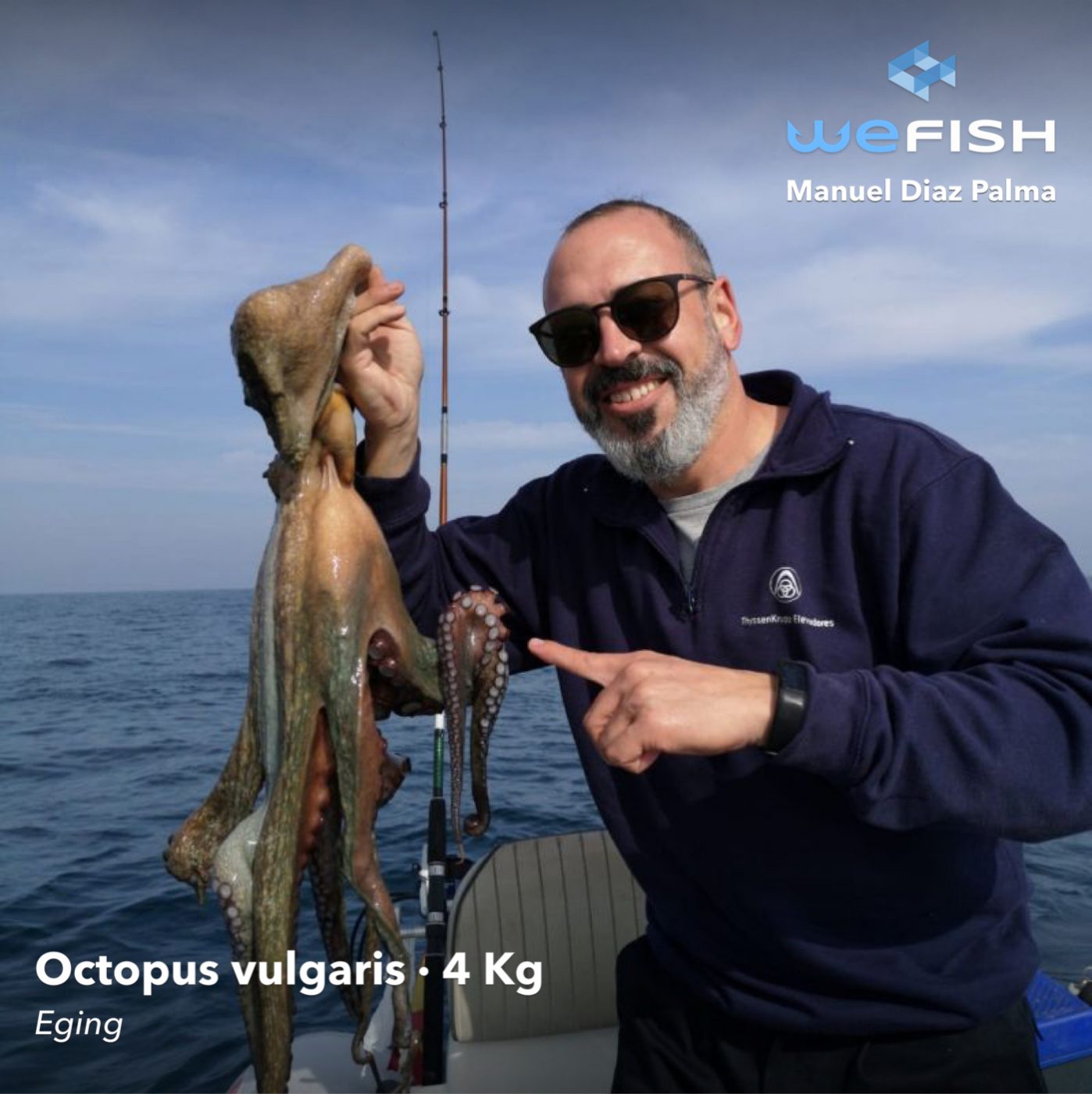
Reproducción de la especie
En las zonas de España y Portugal la cría sucede entre finales de septiembre y principios de noviembre, con puestas que pueden alcanzar los 200.000 huevos. De estos, y debido a la cantidad de depredadores existentes, solo un pequeño porcentaje llegará al pulpo adulto. Este es un período decisivo en la cantidad de pulpos en una zona determinada, no por los padres, que mueren inevitablemente tras el brote y la liberación de sus descendientes, sino porque quedan desprotegidos en un momento en el que miden escasos milímetros y son vulnerables a ataques de todo tipo de peces o estrellas de mar. Además, la reproducción se produce en un momento crítico, con gran inestabilidad temporal, por ejemplo en noviembre hay grandes tormentas y mueren muchos pulpos. La reproducción no ocurre al mismo tiempo al otro lado del Atlántico, en países más tropicales puede ocurrir en el verano.
El nido de un pulpo es básicamente un rincón o nicho de roca en el que se colocan los huevos en racimos, colgados del techo, y que son oxigenados y movidos por la hembra mediante la liberación de agua a través de su sifón. En este período las hembras no se alimentan y mueren de hambre. Los pulpos viven entre dos y, eventualmente, tres años. En años buenos, con poca tormenta, se reproducen bien, lo que significa que en dos años tendremos cientos de pulpos grandes cubriendo las piedras.
Pescar pulpos: ¿Dónde y cuándo encontrarlos?
Los pulpos también frecuentan las áreas de marea baja, persiguiendo a sus presas favoritas, cangrejos o peces que están atrapados en charcos de marea y por lo tanto no pueden escapar. También son visitantes habituales de las zonas de mejillones, que les encantan. Es muy fácil encontrar en las zonas costeras bajas, en la marea baja, pulpos apoyados en las esquinas de la roca, en zonas más oscuras esperando la llegada de la marea.
El pulpo tiene una especial predilección por los fondos bajos, donde puede encontrar la comida con mayor facilidad, ya que hay más vida y, por tanto, más oportunidades para comer. De hecho, solo sale a zonas profundas en los momentos en que la turbulencia de las aguas imposibilita permanecer en rocas cercanas a la costa. Los días de gran oleaje se arrastra mucha arena y piedras, lo que hace que la presencia de pulpos en tus puntos de pesca favoritos sea imposible.
En determinadas épocas del año, como por ejemplo en el período de reproducción, es posible encontrar piedras completamente llenas de pulpos.
Existen dos puntos de pesca que son muy perseguidos: los límites de la piedra que llevan a la arena, donde los pulpos encuentran navajas, almejas, vieiras, sepias, etc. Y las zonas de piedra con marisco pegado, como mejillones y percebes. Los pulpos encuentran comida fácil allí, y los pulpos grandes encuentran pulpos pequeños. En zonas muy remotas, poco conocidas y por tanto poco exploradas, es posible encontrar concentraciones increíbles de pulpos, incluso miles de ellos. Para ello, contribuye mucho que en ese lugar tengan abundante comida.
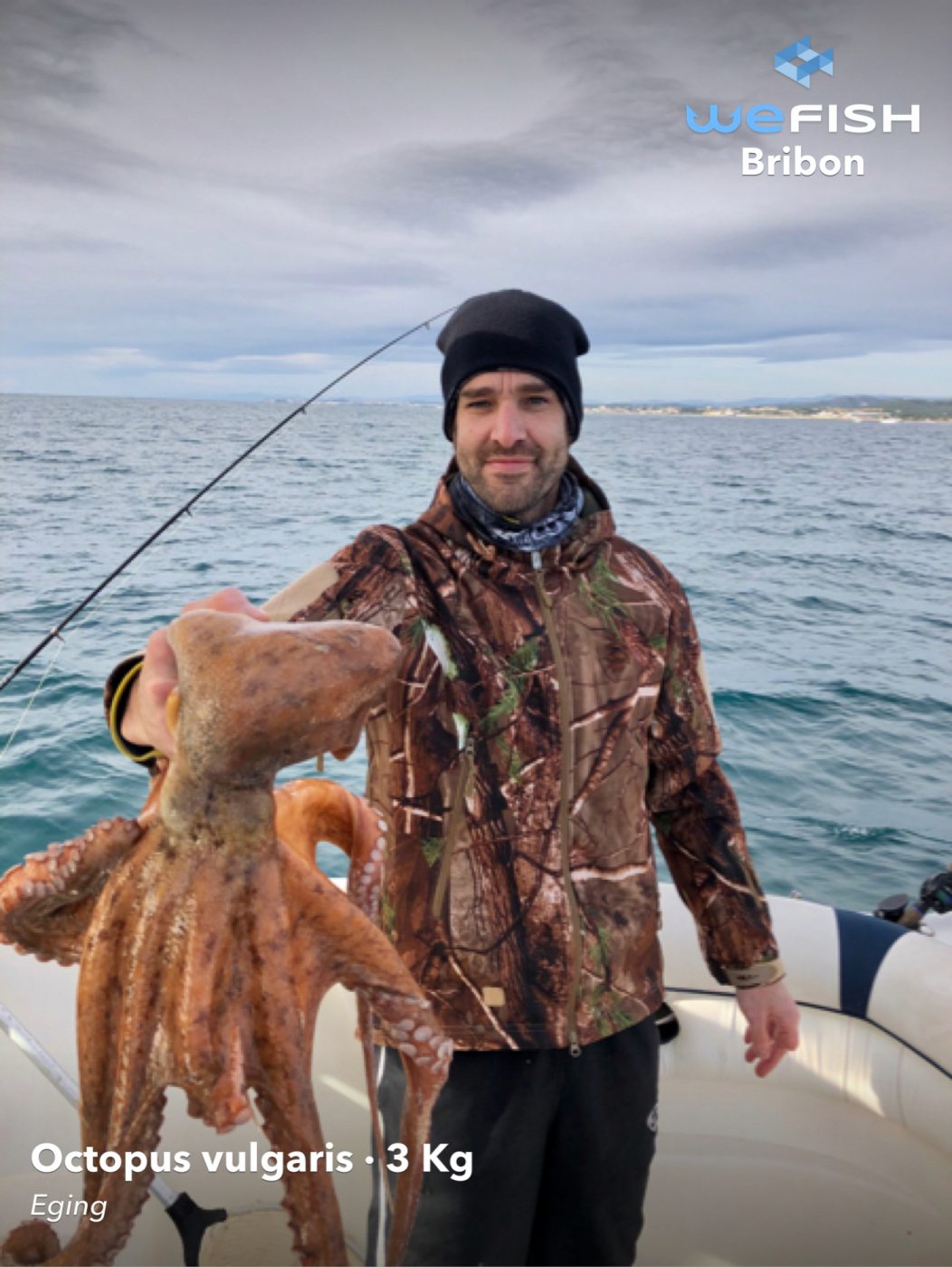
Cómo pescar pulpos
Se trata de una especie cuya captura es fácil, y aunque la modalidad estrella es el Eging, existen varias formas de pescar pulpos:
Por ejemplo aquí en España se pescan con una caña cuyo extremo tiene una pequeña red con peces dentro. La técnica es muy sencilla, consiste en meter la caña en todo lo que se resguarde en los rincones, el pulpo se aferra a la red y queda desprotegido fuera de su escondite. Vítor cuenta que entre los pescadores portugueses la forma más común de pesca profesional del pulpo es colocar de una hilera de jaulas de red con restos de peces dentro. El pulpo da la vuelta y entra en la jaula desde arriba, sin poder salir de ella. Estas jaulas se levantan a diario y se dejan en el mismo lugar. Cabe destacar que en Portugal se capturan cada año unas 10.000 toneladas de pulpo.
Tradicionalmente, el pulpo se pescaba con un cable largo con varios cántaros de barro, descansando en el fondo, explorando la necesidad de que el pulpo se refugiara en un rincón escondido para cazar peces, bivalvos u otras presas desde allí. La pesca submarina también es famosa para capturar pulpos. La profundidad a la que desciende el animal no es mucha, y por tanto, está accesible a iniciados y novatos en esta modalidad. Tras el tiro de arpón, el pulpo retuerce sus extremidades sobre las piedras por lo que siempre deberás tener un gancho a mano para sacarlo de los agujeros.
Por norma general, en caso de ataque el pulpo lanza sus tentáculos sobre todo lo que puede y se cubre. De esta manera se vuelve muy difícil que los pescadores puedan separarlo de la piedra a la que se aferra con fuerza.
Material para capturarlos
Para pescar pulpos se utilizan jibioneras, más grandes que los egis que se usan para pescar sepia, de los que cuelgan unas cintas brillantes, a veces con un pececito pegado, un jurel, un salmonete, algo así. La forma de mover este señuelo es la misma que se usa para la sepia, pequeños tirones cerca del fondo, esperando que se lance un pulpo escondido.
Un dedal de goma evita los cortes que podría causar el nailon. Puede ser que el pescador utilice dos líneas de mano, una para sepia y otra para pulpos. Los barcos manchados de pintura revelan la habilidad del pescador, cuánto más negros… mejores resultados.
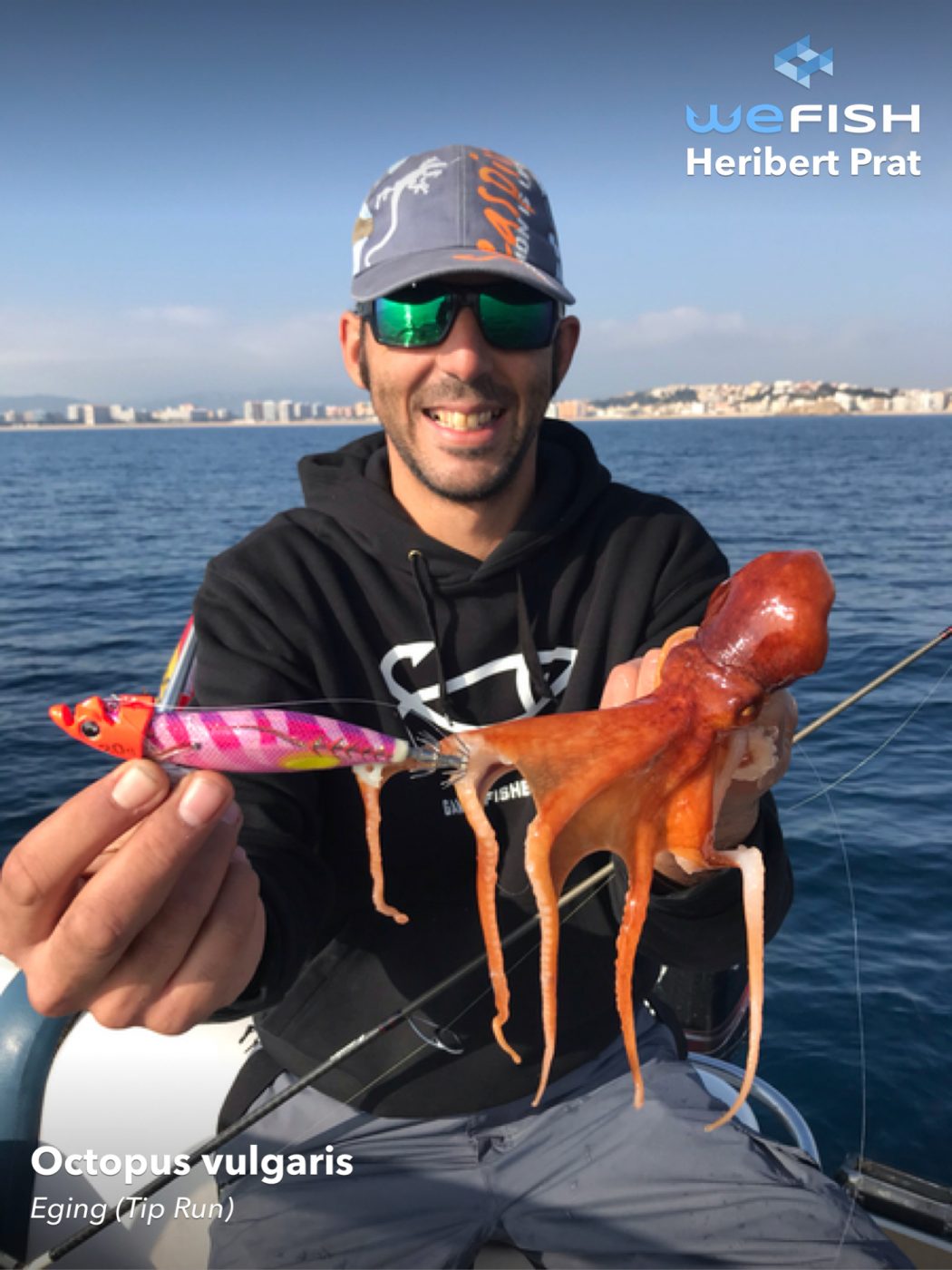
Esperamos que esta guía os sea de utilidad ahora que se acerca la temporada para pescar pulpos. Os recordamos que la información y experiencia de este post vienen de Vítor Ganchinho, CEO de Go Fishing Portugal y poseedor de un magnífico blog de pesca.
Podéis entrar en WeFish para ver cientos de capturas de pulpos, subir las vuestras, comprobar las mejores condiciones meteorológicas para capturarlos e incluso comprar material para pescar a los deseados cefalópodos ????. ¿A qué estás esperando?

